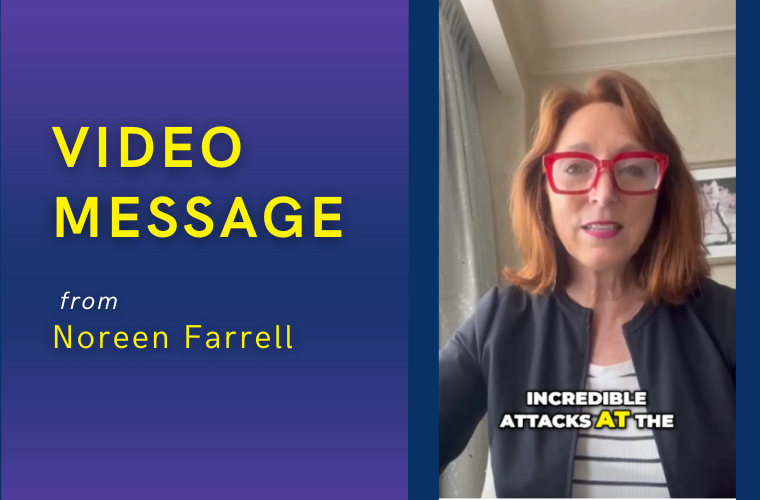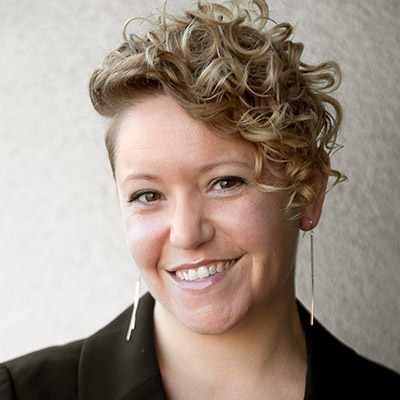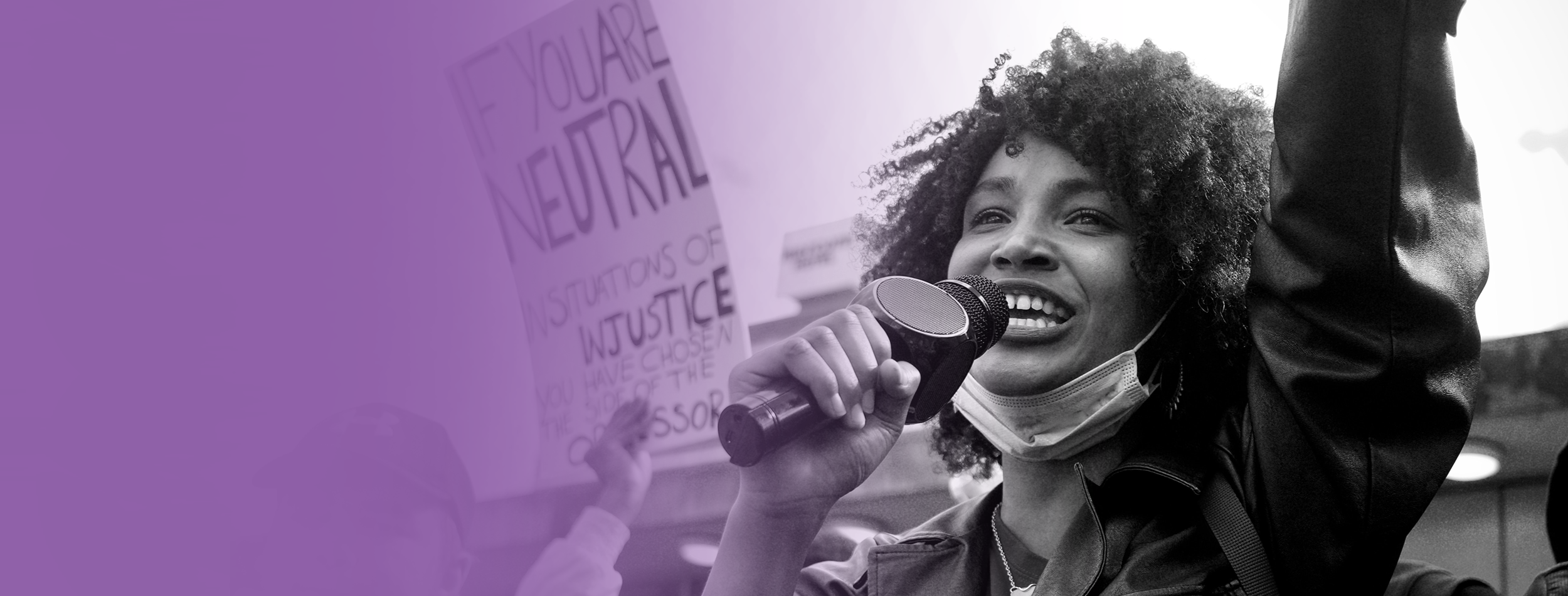
Radical Justice Looks Like Centering the Survivor
April 23. 2018
Brenda Adams

Brenda Adams has dedicated her legal career to representing the most marginalized communities of our society, with an emphasis on providing access to justice for immigrants, members of the LGBT+ community, and low-income communities of color. Joining ERA as a Senior Staff Attorney in January 2018, she helps to lead ERA’s impact litigation, oversee our Advice & Counseling program, and engage with our partners in efforts to end sexual violence at work and in school.
ERA Senior Staff Attorney Brenda Adams shares insights on survivor-centered justice this Sexual Assault Awareness Month.
Experiences of sexual assault often strip survivors of their autonomy. As lawyers, it is our job to help the survivor reclaim that autonomy. The choice of whether or not to take legal action must always be grounded in respecting and uplifting a survivor’s vision of how to move forward. As a survivor, it’s okay to demand that your wants and comfort shape what your attorney does for you.
Being an attorney ally for survivors must begin and end with survivor empowerment. This means survivors should be provided with unbiased information and options. All options should be fully explained to survivors, including the option of doing nothing. Centering the survivor means centering their opinions about whether (not when) to take legal action.
If you’re a survivor, it’s okay to demand that justice look like whatever you say it should look like. […] Sometimes the most radical justice looks like finding an ally who believes you.
I would hope most attorneys already provide these options to their clients. But I also know that some have a tendency (perhaps unconsciously) to steer clients towards what the attorney deems to be the right choice. Many of us love to litigate, and we believe deeply in the power of the law to right wrongs. But that isn’t what matters here. It is essential that attorneys acknowledge their own biases, check them at the door, and provide the information and options to their clients in a neutral way, trusting in their clients’ abilities to make whatever decision is right for them.
Intersectionality and cultural sensitivity play a significant role in empowering sexual assault survivors. A survivor-focused attorney ally must understand where their clients are coming from, and what other major issues may play a role in their decision. I have represented LGBTQ clients who chose not to report their sexual assault because it meant outing themselves — or sometimes their abusive partners. Survivors of color can be faced with the difficult and unfair decision of choosing between their race and their gender; they may choose not to report an assault by a person of color for fear of perpetuating negative stereotypes of men of color or seeing another man from their community incarcerated. Other survivors may not want to report an incident to the police because they or their assailants are undocumented and they fear deportation will result from engaging with law enforcement. It is understandable why many low-income and marginalized people of all backgrounds choose not to engage in legal systems that have targeted and discriminated against their communities across generations.
There’s no magic intersectionality chart for seeking justice. These are just examples and will absolutely not be true for all people who fall into these categories. So, while it’s important to understand that people have various reasons for making the decisions they make (which often relate to their background and experiences) it is equally important not to make sweeping generalizations or assume why a person is making a particular choice. Focus less on the “why” and more on respecting the survivor’s choice and vision for justice, whatever it may be.
Remember: The survivor is the expert in their own experience.
If you’re a survivor, it’s okay to demand that justice look like whatever you say it should look like. If getting justice means simply telling your story to someone who will listen, without judgment and without an agenda, that’s fine. Sometimes the most radical justice looks like finding an ally who believes you.
Stay Connected & Take Action
- Get the Latest News & Information Sign up for Email Updates
- Sign Up for Action Alerts Join the Action Team
- Follow Us



